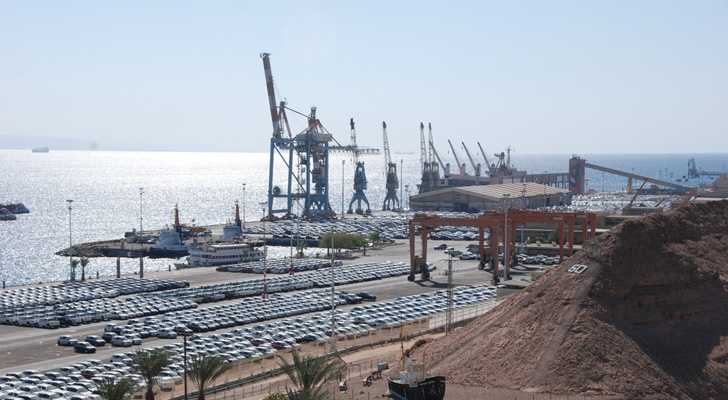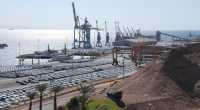The bodies are: The Goldbond Group Ltd; Emilia Development Ltd; Levinstein Assets Ltd; Mifalei Tovala Ltd; Shafir Buildings Ltd; BGI Investments Ltd; Angel Invest Ltd; Papo Maritime Ltd; Maman Cargo Terminals and Handling Ltd; Knafaim Holdings Ltd; FIMI Opportunity IV LP; and Gadot Chemical Tankers and Terminals Ltd.
The Government Companies Authority, headed by Mr. Doron Cohen, began the process for the sale of Eilat Port Company Ltd on May 4. This is another step in the implementation of the port reform, which began in February 2005. The winner of the tender will receive a franchise from the state to operate the port for 15 years, with an option of an additional 10 years, subject to certain conditions and with the state’s approval. The PQ stage included an examination of the threshold conditions and proof of financial strength. In the next stage, these bodies will be required to deposit a NIS 3 million bank guarantee and to begin the due diligence stage. Subsequently, the contenders will be required to submit a business plan and, ultimately, the price quote will be submitted.
In order to manage the tender, the Companies Authority, the Israel Ports Company and the Eilat Port Company have set up a Virtual Information Room intended to streamline the process of obtaining information about the Port of Eilat for potential investors, and to spare them the need to physically visit the port in order to peruse the documents required for due diligence. The contenders for the acquisition of the Eilat Port Company have a simple and convenient information system at their disposal, which they can use to obtain up-to-date information about the state of the company, clarify balances and obtain information about development projects.
Government Companies Authority Director General, Mr. Doron Cohen, noted that “the Government Companies Authority is proceeding with its efforts to sell the Eilat Port Company’s shares, and is working in accordance with the outline and timetable that it has set. The sale of the Eilat Port Company and the successful operation of the port could contribute to competition in the operation of Israel’s ports and generate value for the Israeli consumer, exporters, importers and the Israeli economy as a whole. The Port of Eilat is of strategic, economic and national importance for Israeli trade and for Israel’s economy. Proper and efficient operation of the port will lead to container conveyance through the port and will contribute to the development of the State of Israel’s international trade.”
Mr. Cohen added that “the purpose of the sale is to provide the State of Israel with a new perspective related to the operation of ports, including strategic cooperation with suitable bodies in Israel and abroad, the introduction of new methods of conveyance, the introduction of new initiatives in the area of port activity marketing and increasing the level of services for the customers.”
Israel Ports Ltd CEO, Mr. Shlomo Brieman, noted that “the franchisee will be obligated to continue to provide cargo conveyance services as provided today and may be required to develop the ports sphere of activity to also include shipping containers. Throughout the franchise period, the franchisee will be evaluated at the level of the services provided to customers and in terms of the number of shipping containers that are conveyed. The state is retaining the powers related to the area of regulatory affairs and the vital interests of the state in the areas of economics and security, in order to ensure the intelligent and efficient use of the port. The developer is expected to manage to significantly increase the port’s volume of activity and to utilize the inherent potential of Israeli trade with the Far East.”
Mr. Brieman added that, “the developer will be required to prove considerable thought and originality in order to overcome the relatively great distance between the port and central Israel, and to overcome the land shipping costs imposed on cargo that is conveyed via the port, by operating the port efficiently, lowering operating costs and creating the right incentives that will encourage customers to convey their cargo via the Port of Eilat.”
At present, the port’s activity consists primarily of vehicle imports and chemical exports, along with the recent development of passenger tourism. The port conveys approximately 6% of the State of Israel’s trade, and has the potential to convey containers on an order of magnitude of approximately 200,000 containers per year.
The number of employees at the port is around 127, and the Port of Eilat’s revenues in 2010 amounted to approximately NIS 122 million. The Port of Eilat’s net profit in 2010 amounted to approximately NIS 15.8 million. Its cash flow from current operations in 2010 amounted to approximately NIS 33 million and the port’s equity capital at the end of 2010 amounted to approximately NIS 223 million.





